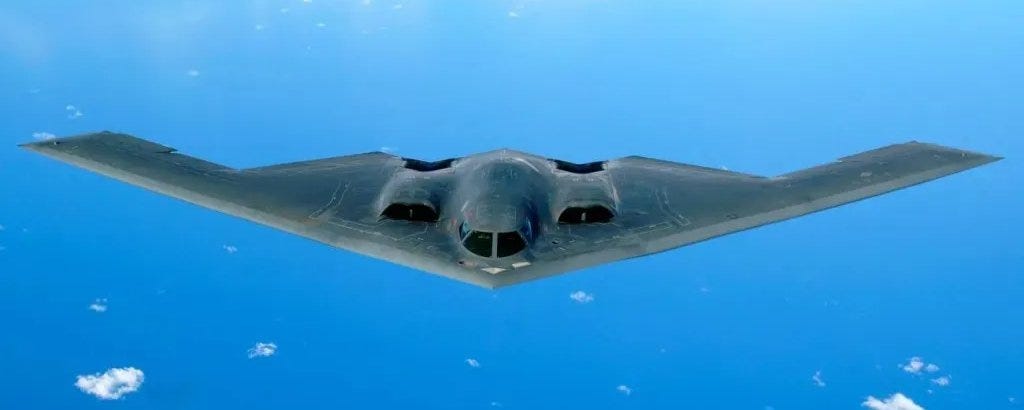A president sends bombers across an ocean. An adversary’s nuclear infrastructure lies in ruins by sunrise. The political response is predictable. Progressive lawmakers erupt with outrage, while establishment media outlets evoke doomsday analogies and quote scholars feigning constitutional clairvoyance. Yet the core question remains unmoved by headlines: Did President Trump have the legal authority to strike Iran’s nuclear facilities without prior congressional approval? Yes, he did. And if that sentence jars the reader’s sensibilities, one need only recall Barack Obama’s Libya intervention or Joe Biden’s Syria strikes, both executed without congressional authorization and with a fraction of the current outcry.
To assert that Trump’s action was unique or impeachable is not only mistaken but deeply hypocritical. The United States has, for decades, operated under a presidency that claims robust authority to initiate limited military actions abroad, particularly when vital national interests are at stake. The 1973 War Powers Resolution, often brandished by critics, has become more of a procedural courtesy than a substantive check. Obama and Biden both used it to justify acts of war after the fact, with little or no prior consultation. No articles of impeachment followed.
Take Libya, 2011. President Obama launched airstrikes and enforced a no-fly zone over a sovereign nation’s territory without congressional approval. He cited humanitarian concerns and United Nations resolutions, but what he did not do was ask Congress. When legislators demanded a vote, the administration insisted that US involvement did not amount to "hostilities." A semantic evasion, unworthy of a constitutional republic, yet it sufficed. Even liberal voices like Rep. Dennis Kucinich accused Obama of violating the Constitution. And what was Alexandria Ocasio-Cortez’s reaction? She was not in Congress, but her party’s leadership mounted no impeachment campaign.
Consider next the Obama administration’s 2014 air campaign against ISIS. It was a full-scale war, initiated without a new authorization. Instead, Obama’s lawyers stretched the 2001 AUMF, enacted to fight al-Qaeda, to cover ISIS, a group that did not exist at the time and had been denounced by al-Qaeda. The justification was so contorted that even Obama allies publicly questioned its legality. Congress responded by doing nothing. Legislators preferred to posture in hearings while avoiding a recorded vote. The press gave Obama the benefit of the doubt, praising his “measured” approach. No calls for impeachment rang through the Capitol.
Under President Biden, the pattern continued. In 2021, Biden ordered airstrikes against Iranian-backed militias in Syria. He cited his Article II authority, claiming self-defense of US forces. He did not ask Congress for permission. He notified them only after the fact. Progressive members like Rep. Ro Khanna and Sen. Chris Murphy objected mildly. Yet there was no move to impeach. There was no media frenzy about executive overreach. The same Democrats now denouncing Trump’s Iran strikes as criminal remained largely silent.
The constitutional principle is consistent. The president, as commander in chief, has long claimed the authority to initiate limited military action to protect US interests. Whether one agrees with this expansive interpretation or not, it has been applied evenly across administrations, until now. Trump’s 2025 strikes on Iran’s nuclear sites were within the same tradition. He notified congressional leadership, used US forces to degrade an adversary’s military infrastructure, and acted in defense of national and allied security. No American troops were deployed on the ground. The operation was targeted and strategic.
And yet, the outrage.
Rep. Ocasio-Cortez called for impeachment within hours, branding the action “unauthorized war-making.” Sen. Chris Van Hollen decried a “clear violation of our Constitution.” These same figures sat idle during Obama’s far broader military operations. Are we to believe that their constitutional fidelity awakens only under Republican presidents?
Moreover, the media’s portrayal betrays its bias. Obama’s Libya war was couched in humanitarian terms, a noble intervention to prevent genocide. Biden’s Syria strikes were depicted as routine housekeeping—unfortunate but necessary responses to provocations. In contrast, Trump’s destruction of Iran’s nuclear infrastructure, a program that the Ayatollahs have pledged to use against Israel and perhaps the US, is portrayed as a warmongering overreach.
This distortion is not merely unfair; it undermines the integrity of our constitutional debate. If Congress wishes to reassert its war-making power, it must do so consistently. It cannot turn a blind eye to executive action under Democrats, only to rediscover the Constitution when Trump is in office. That is not constitutionalism, but opportunism.
Some argue that Iran posed no "imminent" threat, and therefore Trump lacked the authority to act under his Article II powers. But this misconstrues both law and prudence. The standard is not “imminent attack,” but the protection of national security interests. Presidents from Jefferson to Reagan have exercised this judgment. If Iran’s nuclear program, hardened underground and nearing breakout capacity, does not qualify as a strategic threat justifying preventive action, then what does? Should a mushroom cloud be the precondition for legality?
There is, of course, an argument to be made for narrowing presidential war powers. That argument must begin with Congress reclaiming its authority by statute and political will, not selective outrage. It must include repealing outdated AUMFs, as some bipartisan coalitions have attempted. But it cannot include the impeachment of a president for acting within a well-worn precedent followed by his predecessors of both parties.
The hypocrisy is palpable. The constitutional analysis is thin. The political motives are transparent.
Trump’s strike on Iran was lawful, proportionate, and strategically justified. Those who now clamor for impeachment would do well to consult their own silence during Obama and Biden’s unilateral adventures. If consistency is the hobgoblin of little minds, then perhaps it is time Congress grew one.
If you enjoy my work, please consider subscribing https://x.com/amuse.





